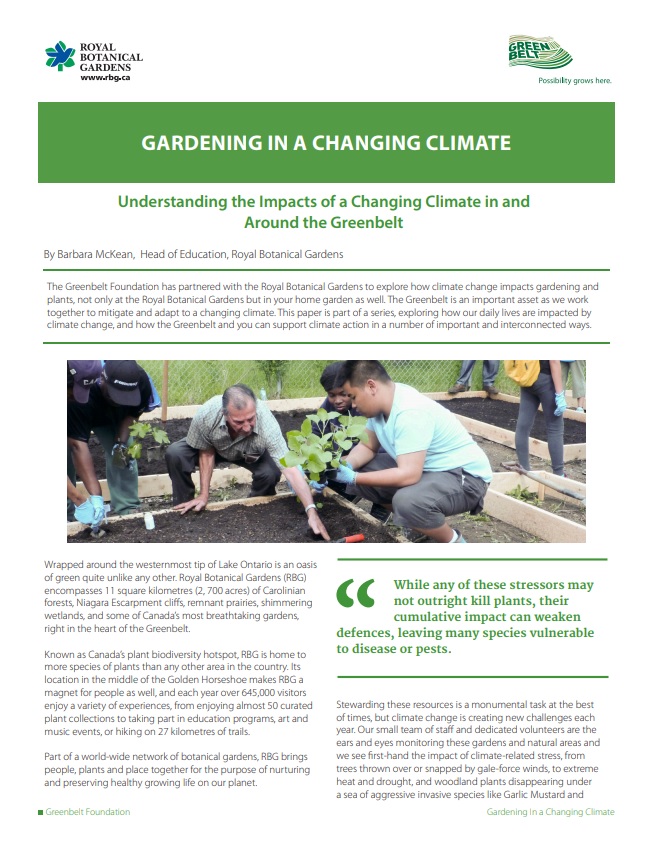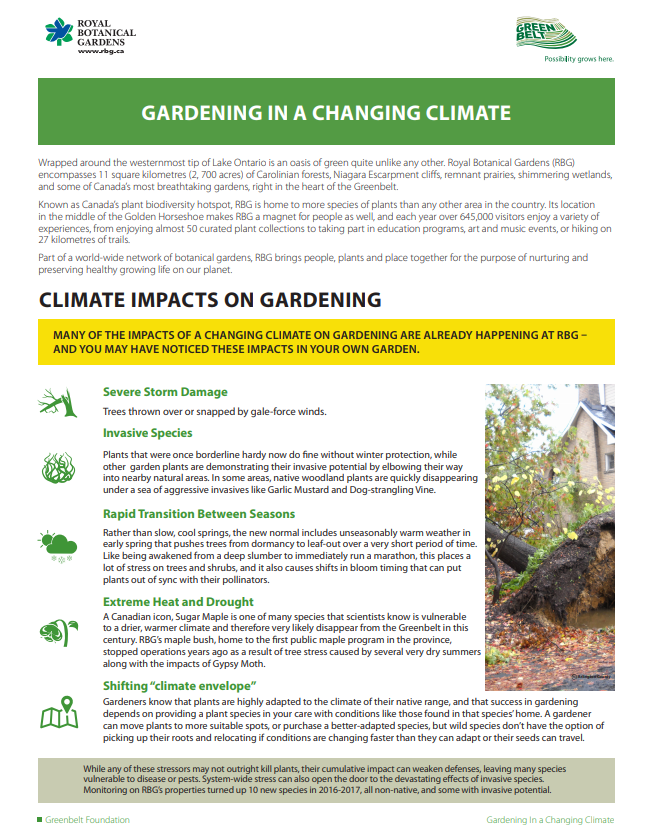 The Greenbelt Foundation is launching a series of articles exploring how climate change is impacting the region and the people who live here, and how residents can take action.
The Greenbelt Foundation is launching a series of articles exploring how climate change is impacting the region and the people who live here, and how residents can take action.
CEO of the Greenbelt Foundation, Edward McDonnell, shared some of his thoughts on the Greenbelt website:
“The entire Greater Golden Horseshoe region is being affected by a combination of climate change and population growth. It is now commonly accepted that current climatic changes and extreme weather impacts are just the beginning. The Greenbelt Foundation partnered with experts to better understand how climate change is affecting many aspects of our lives, and ways that we can individually and collectively respond to these challenges.”
For the first article in the series, the Greenbelt Foundation partnered with the Royal Botanical Gardens (RBG) in Burlington to explore how climate change impacts gardening and plants, not only at the RBG but in people’s home gardens as well.
“Known as Canada’s plant biodiversity hotspot, RBG is home to more species of plants than any other area in the country,” the article by Barbara McKean shares. “Its location in the middle of the Golden Horseshoe makes RBG a magnet for people as well, and each year over 645,000 visitors enjoy a variety of experiences, from enjoying almost 50 curated plant collections to taking part in education programs, art and music events, or hiking on 27 kilometres of trails.”
This first article, Gardening in a Changing Climate, takes a look at climate impacts on gardening that are already happening at the RBG, such as severe storm damage, invasive species and extreme heat/drought, and also highlights actions individuals can take in their own gardens.
Stay tuned for more in the series to come on the Greenbelt website.
“In 50 years no one will regret the fact that we protected 2,000,000 acres of prime farmland, forests and wetlands. There will be no complaints that there is just too much clean water, too much fresh air, and too much nutritious local food,” shares McDonnell.
